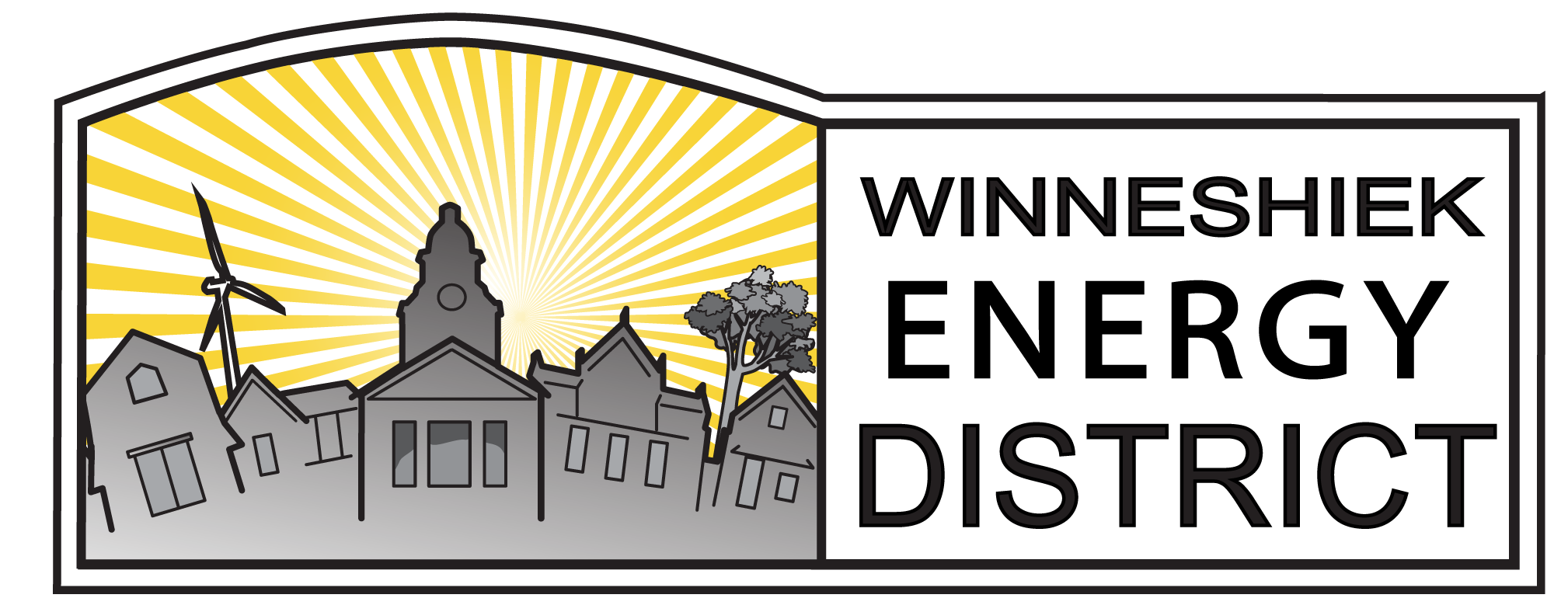WED and UERPC Lead Regional Electric Vehicle Collaborative
By Andy Johnson, Executive Director
Electric vehicles (EVs) are the future, and the future is coming quickly to Northeast Iowa.
Winneshiek Energy District and Upper Explorerland Regional Planning Commission have teamed up to lead a regional partnership that will accelerate the economic and environmental benefits from that transition. Additional partners include Northeast Iowa Community College, Northeast Iowa Resource Conservation and Development, and Luther College economist Steven Holland.
Winneshiek Energy District has received a significant grant from the Iowa Energy Center to support the 2-year regional collaborative. WED’s portion of the project will center around providing technical assistance to major employers and their employees, as well as to local governments.
“There is tremendous opportunity for employers to offer relatively low-cost charging to employees at the workplace”, according to WED’s Executive Director Andy Johnson. “Many rural commuters could save well over $500/year in fuel by driving electric, and the climate impacts are significantly less than gasoline.”
Upper Explorerland will be conducting a regional EV infrastructure and corridor planning study, as well as facilitating a regional workgroup that brings together economic development, energy district, and other local leadership from throughout the five-county project area.
“A great benefit of this regional partnership is bringing people together so we’re all on the same page”, says Michelle Barness, Regional Planner with Upper Explorerland. “There is growing interest in EVs and the potential benefits they provide, and early, joint efforts to plan and coordinate around this issue opens doors for acting on funding opportunities, partner projects, and more. Every community can prosper from the transition to EVs when we work together.”
Northeast Iowa Community College is focused on workforce development. The college plans to 1) identify and train relevant faculty; 2) conduct curriculum development for continuing ed programs for the existing workforce, including mechanics, dealers, city/code officials, first responders, fleet managers, electricians, and 3) conduct curriculum development for existing and potentially new 2-year degree programs related to all aspects of the EV and EVSE transition.
Resource Conservation and Development will conduct a study focused on the tourism needs and opportunities presented by the transition to electric transportation. Tourism is an important part of northeast Iowa’s economy, but if the communities and businesses don’t have the infrastructure to support EV travelers, we may lose out. Conversely, if we build it (we can hope), they will come.
Finally, Luther College economist Steve Holland will be conducting an economic impact analysis of the region’s transition towards electric vehicles. Holland has conducted regional analyses in the past, such as for local food systems, and is looking forward to identifying both the challenges and opportunities our communities and region may face during the transition towards and electrified transportation system.
The transition to electric vehicles is a tremendous opportunity for the state, and NE Iowa can lead the way. Iowa has a severe negative balance of trade in the energy sector, importing more than twice the raw energy we produce. Motor gasoline is a major portion of this trade imbalance, and represents over $7 billion in annual expenditures. Replacing imported fuel with Iowa-produced renewable power as fuel will dramatically improve Iowa’s balance of trade, reduce the energy burden on Iowa ratepayers, and strengthen household, business, and community balance sheets.
